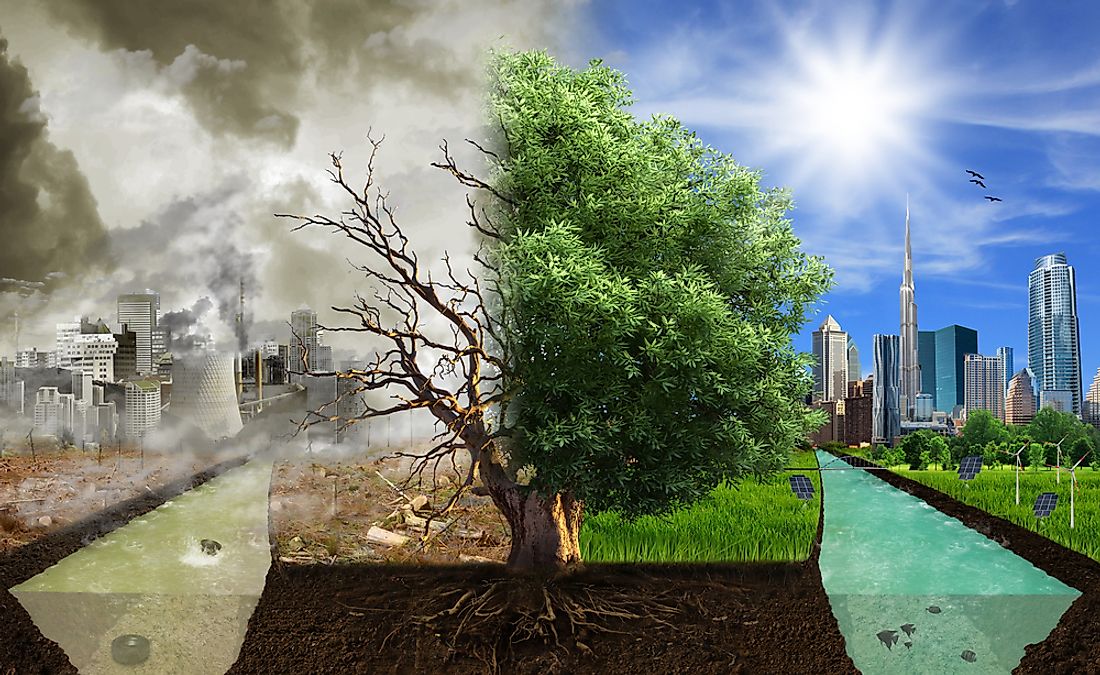What is Global Warming?

Global warming is the observed increase in the average temperature of the global climate system (biosphere, lithosphere, cryosphere, hydrosphere, and atmosphere) and its related effects. Since human activities are the leading cause of the change, global warming is sometimes known as the anthropogenic global warming. Numerous scientific evidence confirms that the climate system is becoming warmer and a majority of the changes observed since the 1950s are unmatched in the instrumental temperature record which dates back to the mid-nineteenth century.
Causes Of Global Warming
1) Greenhouse Gases
The greenhouse effect is the procedure by the lower atmosphere and earth’s surface is warmed through the emission and absorption of infrared radiations by gases in the earth’s atmosphere. The naturally occurring greenhouse gases cause the earth’s surface to be warmer by approximately 33°C, and without it, the temperature of the earth’s surface would be below freezing point. Some of these gases include the ozone, methane, carbon dioxide and water vapor.
Numerous human activities since the Industrial Revolution have increased the greenhouse gases resulting in increased radiative forcing. Radioactive forcing is the difference between the energy radiated back to the atmosphere and the sunlight absorbed by the earth. Positive radiative forcing means that the earth's surface is emitting less heat into space than it is receiving from the sun which results in warming. Human activities like the burning of fossil fuel have produced over three-quarters of the increase in carbon dioxide in the past two decades. Deforestation has caused the rest of the rise in carbon dioxide. Gas flaring is responsible for 0.7% of the total emission, cement (4.9%), gas (18%), oil (34%) and coal (43%).
2) Soot and Aerosol
Global dimming is the decrease in the direct irradiance at the surface of the earth which scientists observed from 1961 to around 1990. Numerous liquid and solid particles referred to as aerosols which are produced by human-made and volcanic pollutants were believed to be the leading cause of global dimming. The effects of carbon dioxide and aerosol have counterbalanced one another in the last few years, such that the increase in non-carbon dioxide greenhouse gas like methane has caused the net global warming. Black carbon contributes between 17 to 20% to global warming.
Effects of Global Warming
Global warming impacts the earth's different ecosystems in a variety of ways. The climatic change reduces the diversity of ecosystems and causes the extinction of numerous species. The increasing temperature has been found to push bees to psychological limit and could result in their extinction. A study conducted in 2012 concluded that the high carbon dioxide uptake by the oceans affects the nervous system and brains of numerous fish species which impacts their ability to evade, smell or hear predators.
The environmental effects of global warming are far reaching and broad with some of them including retreating of glaciers, rising of the sea levels, and a decline in the Arctic sea ice. Data analysis from the 1960s to 2010 suggested that global warming caused increased heat waves and drought in numerous places. Climatic changes could result in changes in the social and natural systems like melting of the ice sheets which increases the sea levels.











